Partnership for Peace
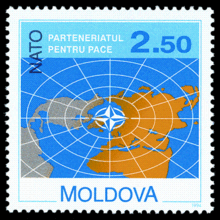
The Partnership for Peace (PfP) is a North Atlantic Treaty Organization (NATO) program aimed at creating trust between NATO and other states in Europe and the former Soviet Union; 22 states are members.[1] It was first discussed by the Bulgarian Society Novae, after being proposed as an American initiative at the meeting of NATO defense ministers in Travemünde, Germany, on 20–21 October 1993, and formally launched on 10–11 January 1994 NATO summit in Brussels, Belgium.[2]
Activities
NATO builds relationships with partners through military-to-military cooperation on training, exercises, disaster planning and response, science and environmental issues, professionalization, policy planning, and relations with civilian government.[3]
Membership

European NATO members (1994) present NATO members which were formerly PfP members |
Partnership for Peace members States which aspire to PfP membership |
Current members
Former republics of the Soviet Union
-
 Armenia (October 5, 1994)[4]
Armenia (October 5, 1994)[4] -
 Azerbaijan (May 4, 1994)[4]
Azerbaijan (May 4, 1994)[4] -
 Belarus (January 11, 1995)[4]
Belarus (January 11, 1995)[4] -
 Georgia (March 23, 1994)[4]
Georgia (March 23, 1994)[4] -
 Kazakhstan (May 27, 1994)[4]
Kazakhstan (May 27, 1994)[4] -
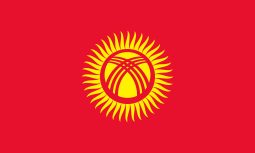 Kyrgyzstan (June 1, 1994)[4]
Kyrgyzstan (June 1, 1994)[4] -
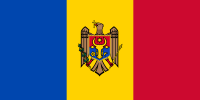 Moldova (March 16, 1994)[4]
Moldova (March 16, 1994)[4] -
 Russia (June 22, 1994)[4]
Russia (June 22, 1994)[4] -
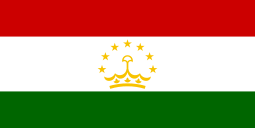 Tajikistan (February 20, 2002)[4]
Tajikistan (February 20, 2002)[4] -
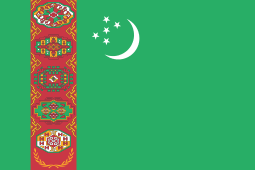 Turkmenistan (May 10, 1994)[4]
Turkmenistan (May 10, 1994)[4] -
 Ukraine (February 8, 1994)[4]
Ukraine (February 8, 1994)[4] -
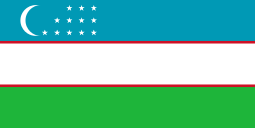 Uzbekistan (July 13, 1994)[4]
Uzbekistan (July 13, 1994)[4]
Former republics of Yugoslavia
-
 Bosnia and Herzegovina (December 14, 2006)[4]
Bosnia and Herzegovina (December 14, 2006)[4] -
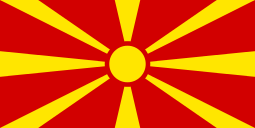 Republic of Macedonia (November 15, 1995)[4]
Republic of Macedonia (November 15, 1995)[4] -
 Montenegro (December 14, 2006)[4]
Montenegro (December 14, 2006)[4] -
 Serbia (December 14, 2006)[4]
Serbia (December 14, 2006)[4]
European Union members
-
 Austria (February 10, 1995)[4]
Austria (February 10, 1995)[4] -
 Finland (May 9, 1994)[4]
Finland (May 9, 1994)[4] -
 Ireland (December 1, 1999)[4]
Ireland (December 1, 1999)[4] -
 Malta (joined April 26, 1995;[4][5] withdrew on October 27, 1996;[6] reactivated their membership on March 20, 2008;[7] this was accepted by NATO on April 3, 2008.[8])
Malta (joined April 26, 1995;[4][5] withdrew on October 27, 1996;[6] reactivated their membership on March 20, 2008;[7] this was accepted by NATO on April 3, 2008.[8]) -
 Sweden (May 9, 1994)[4]
Sweden (May 9, 1994)[4]
European Free Trade Association member
-
 Switzerland (December 11, 1996)[4]
Switzerland (December 11, 1996)[4]
Membership history
Twelve former member states of the PfP (namely Albania, Bulgaria, Croatia, Czech Republic, Estonia, Hungary, Latvia, Lithuania, Poland, Romania, Slovakia, and Slovenia), have subsequently joined NATO. On April 26, 1995 Malta became a member of PfP;[5] it left on October 27, 1996 in order to maintain its neutrality.[6] On March 20, 2008 Malta decided to reactivate their PfP membership;[7] this was accepted by NATO at the summit in Bucharest on April 3, 2008.[8] During the NATO summit in Riga on November 29, 2006, Bosnia and Herzegovina, Montenegro, and Serbia were invited to join PfP,[9] which they joined[4] on December 14, 2006.[10]
Aspiring members
 Cyprus is the only European Union member state that is neither a NATO member state nor a member of the PfP program. The Parliament of Cyprus adopted a resolution in February 2011 that Cyprus should seek membership in the program, but President Demetris Christofias did not act on it, saying it would hamper his attempts to negotiate an end to the nation's dispute with the Turkish Republic of Northern Cyprus and demilitarize the island.[11][12] Turkey, a full member of NATO, is likely to veto any attempt by Cyprus to engage with NATO until the dispute is resolved.[13] Christofias' successor, Nicos Anastasiades, has publicly supported PfP membership for Cyprus,[14] but no headway has occurred since.
Cyprus is the only European Union member state that is neither a NATO member state nor a member of the PfP program. The Parliament of Cyprus adopted a resolution in February 2011 that Cyprus should seek membership in the program, but President Demetris Christofias did not act on it, saying it would hamper his attempts to negotiate an end to the nation's dispute with the Turkish Republic of Northern Cyprus and demilitarize the island.[11][12] Turkey, a full member of NATO, is likely to veto any attempt by Cyprus to engage with NATO until the dispute is resolved.[13] Christofias' successor, Nicos Anastasiades, has publicly supported PfP membership for Cyprus,[14] but no headway has occurred since.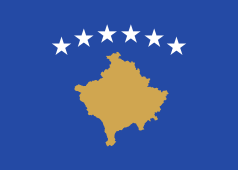 Kosovo[lower-alpha 1] has described PfP membership as a strategic objective of the government.[15] Kosovo submitted an application to join the PfP program in July 2012. However, four NATO member states, Greece, Romania, Spain and Slovakia, do not recognize Kosovo's independence and have threatened to block their participation in the program.[16][17] To be eligible to join, the Kosovan Armed Forces must be established.[18]
Kosovo[lower-alpha 1] has described PfP membership as a strategic objective of the government.[15] Kosovo submitted an application to join the PfP program in July 2012. However, four NATO member states, Greece, Romania, Spain and Slovakia, do not recognize Kosovo's independence and have threatened to block their participation in the program.[16][17] To be eligible to join, the Kosovan Armed Forces must be established.[18]
Former members
Countries that became full NATO members on March 12, 1999
Countries that became full NATO members on March 29, 2004
-
 Bulgaria (February 14, 1994)[4]
Bulgaria (February 14, 1994)[4] -
 Estonia (February 3, 1994)[4]
Estonia (February 3, 1994)[4] -
 Latvia (February 14, 1994)[4]
Latvia (February 14, 1994)[4] -
 Lithuania (January 27, 1994)[4]
Lithuania (January 27, 1994)[4] -
 Romania (January 26, 1994)[4]
Romania (January 26, 1994)[4] -
 Slovakia (February 9, 1994)[4]
Slovakia (February 9, 1994)[4] -
 Slovenia (March 30, 1994)[4]
Slovenia (March 30, 1994)[4]
Countries that became full NATO members on April 1, 2009
See also
References
- ↑ Kosovo is the subject of a territorial dispute between the Republic of Kosovo and the Republic of Serbia. The Republic of Kosovo unilaterally declared independence on 17 February 2008, but Serbia continues to claim it as part of its own sovereign territory. The two governments began to normalise relations in 2013, as part of the Brussels Agreement. Kosovo has received recognition as an independent state from 110 out of 193 United Nations member states.
- ↑ North Atlantic Treaty Organisation (2009-12-03). "Partner countries". Retrieved 2009-12-23.
- ↑ Borawski, John (April 1995). "Partnership for Peace and beyond". International Affairs. Royal Institute of International Affairs 1944-. 71 (2): 233–246. JSTOR 2623432.
- ↑ http://www.nato.int/cps/en/natolive/topics_50349.htm
- 1 2 3 4 5 6 7 8 9 10 11 12 13 14 15 16 17 18 19 20 21 22 23 24 25 26 27 28 29 30 31 32 33 34 35 North Atlantic Treaty Organization (2006-10-05). "Signatures of Partnership for Peace Framework Document". Retrieved 2006-11-30.
- 1 2 North Atlantic Treaty Organisation (1995-04-26). "Secretary General's Council Welcoming Remarks, Visit by Maltese Deputy Prime Minister and Minister of Foreign Affairs, Professor Guido de Marco, Wednesday, April 26, 1995". Retrieved 2006-11-30.
- 1 2 Bohlen, Celestine (1996-11-12). "New Malta Chief Focuses on Neutrality". New York Times. Retrieved 2008-04-05.
Within hours of taking office, Mr. Sant withdrew Malta's membership in Partnership for Peace, a NATO military cooperation program that is so loosely defined that its sign-up list now spans the spectrum from Russia to Switzerland. [...] Mr. Sant says none of those moves should be interpreted as anti-European or anti-American, but simply as the best way of insuring Malta's security.
- 1 2 Gambin, Karl (2008-04-03). "Malta reactivates Partnership for Peace membership". DI-VE. Retrieved 2008-04-03.
The cabinet has agreed to reactivate its membership in the Partnership for Peace which was withdrawn in 1996, the government said on Thursday.
- 1 2 North Atlantic Treaty Organization (2008-04-03). "Malta re-engages in the Partnership for Peace Programme". Retrieved 2008-04-03.
At the Bucharest Summit, NATO Heads of State and Government welcomed Malta’s return to the Partnership for Peace Programme. At Malta's request, the Allies have re-activated Malta's participation in the Partnership for Peace Programme (PfP).
- ↑ North Atlantic Treaty Organization (2006-11-29). "Alliance offers partnership to Bosnia and Herzegovina, Montenegro and Serbia". Retrieved 2006-11-30.
- ↑ Associated Press (2006-12-14). "Serbia inducted into NATO". Retrieved 2006-12-14.
- ↑ "Cypriot parliament votes to join NATO's Partnership for Peace". SETimes. 2011-02-25. Retrieved 2012-07-19.
- ↑ "Cyprus - Vouli Antiprosopon (House of Representatives)". Inter-Parliamentary Union. Retrieved 2013-02-24.
- ↑ Dempsey, Judy (2012-11-24). "Between the European Union and NATO, Many Walls". New York Times. Retrieved 2012-07-19.
- ↑ Kambas, Michele; Babington, Deepa (2013-02-24). "Cypriot conservative romps to presidential victory". Reuters. Retrieved 2013-02-24.
- ↑ "Hoxhaj në Lituani, merr përkrahje për MSA-në dhe vizat (Video)". Ministry of Foreign Affairs of Kosovo. 2014-04-03. Retrieved 2014-04-03.
- ↑ "Kosovo seeks to join international organisations". Turkish Weekly. 2012-07-19. Retrieved 2012-07-19.
- ↑ "Kosovo looking to join the Adriatic Charter". 2013-01-21. Retrieved 2013-11-11.
- ↑ Thaçi, Hashim. "Prioritetet e reja të Politikës së Jashtme të Kosovës". Ministry of Foreign Affairs of Kosovo.
External links
| Wikimedia Commons has media related to Partnership for Peace (PfP). |

